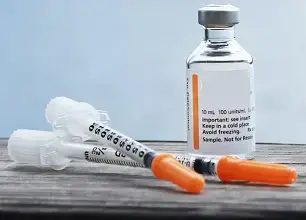When compared to daily oral treatment, British pharmaceutical company GSK said on Wednesday that its long-acting injectable HIV medicine has shown promise in suppressing the viral load of infected individuals, particularly in people who have trouble swallowing pills.
Interim analysis of a late-stage trial on the therapy known as Cabenuva showed that, in patients with a history of noncompliance with oral antiretroviral treatment—which is used to suppress and slow the progression of the disease—it was more effective at maintaining viral load suppression than daily oral therapy.
According to GSK, one of the main reasons why some HIV-positive individuals find it difficult to control their virus is inconsistent adherence.
The medication is being produced by GSK’s ViiV Healthcare division, in which Pfizer and Shionogi have minor ownership shares.
One of the factors that contributed to the company’s success last year was the strong sales of HIV medications, which treat the virus that causes AIDS and bring in 6.44 billion pounds ($8.13 billion) annually. Emma Walmsley, the CEO, is putting a lot of effort into boosting investor trust in GSK’s drug development pipeline.
Sales of Cabenuva last year more than doubled to 708 million pounds.

